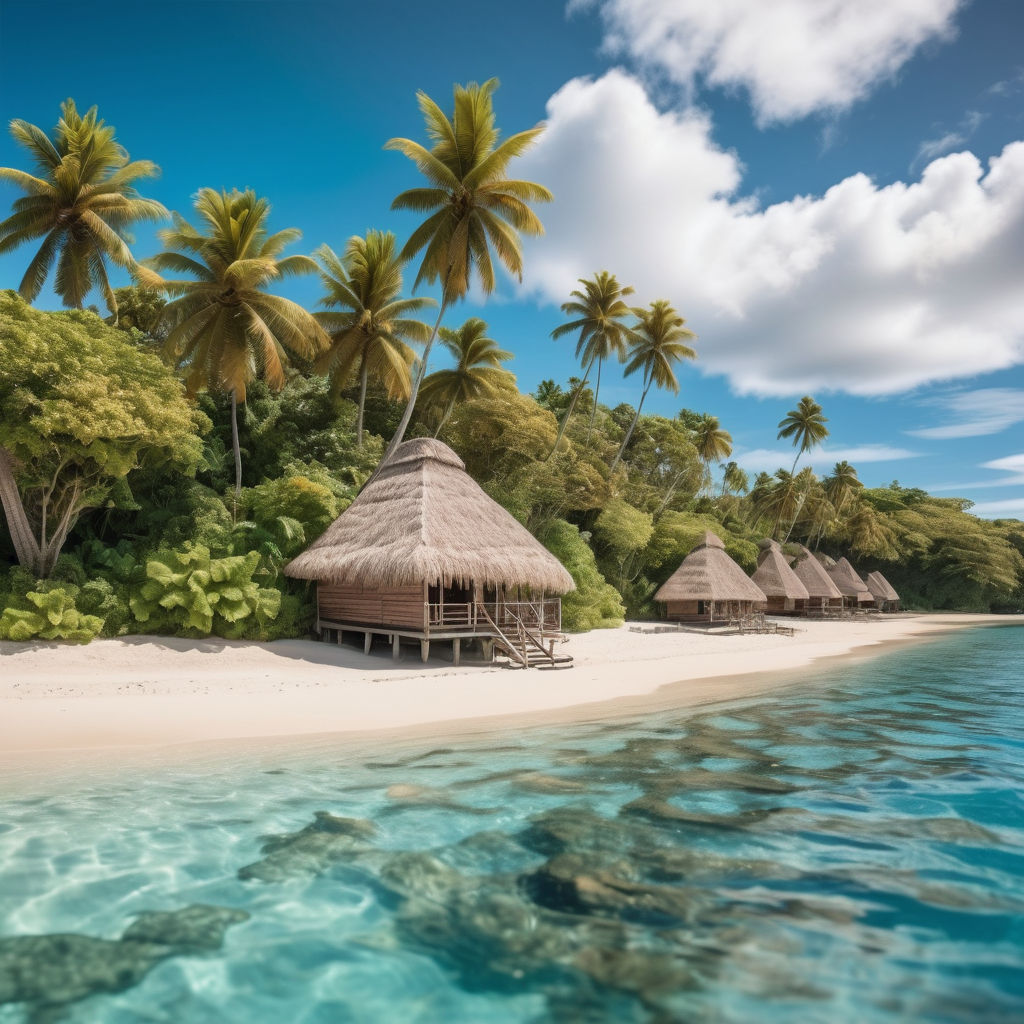Introduction to Fiji: A Tropical Paradise with Rich Cultural Heritage
Discover Fiji: Islands of Natural Beauty and Cultural Diversity

Introduction to Fiji
Fiji, an archipelago in the South Pacific, comprises over 330 islands, of which about 110 are permanently inhabited. The country is situated northeast of New Zealand's North Island and east of Australia. The two largest and most significant islands are Viti Levu, home to the capital city Suva, and Vanua Levu. Other major cities include Nadi, known for its international airport, and Lautoka, a key sugarcane industry hub. Fiji is renowned for its stunning natural landscapes, including crystal-clear waters, white sandy beaches, and lush rainforests, making it a popular tourist destination. Fiji's rich cultural heritage is a blend of indigenous Fijian traditions, Indian influences, and European colonial history. The country is known for its vibrant festivals, traditional music and dance, and intricate crafts. The annual Hibiscus Festival in Suva, the Bula Festival in Nadi, and Diwali celebrations are notable events that highlight Fiji's diverse cultural tapestry. Fijian cuisine, featuring dishes like kokoda (marinated raw fish) and lovo (food cooked in an earth oven), reflects the archipelago's abundant natural resources and cultural influences.
Cross-national and Cross-cultural Understanding
Fijians generally exhibit a welcoming and open attitude towards other cultures, a trait fostered by the country's diverse population and history of migration. Fiji is home to a multi-ethnic society comprising indigenous Fijians, Indo-Fijians, and smaller communities of Europeans, Chinese, and other Pacific Islanders. This diversity has cultivated a culture of tolerance and mutual respect. Cultural exchanges are a significant aspect of fostering cross-cultural understanding in Fiji. The country hosts various festivals and events that celebrate both local and international traditions. For example, the Hibiscus Festival brings together people from different cultural backgrounds to celebrate Fijian culture through music, dance, and art. Additionally, the Pacific Arts Festival, which Fiji has hosted, promotes cultural exchange among Pacific nations. Educational programs in Fiji emphasize global awareness and cross-cultural understanding. Schools and universities incorporate multicultural perspectives into their curricula, encouraging students to appreciate and respect diversity. The University of the South Pacific, headquartered in Suva, serves as a regional hub for higher education, attracting students from across the Pacific and facilitating cross-cultural interaction and learning.
Interactions and Social Dynamics
Typical interactions between Fijians and foreigners are characterized by warmth, respect, and a strong sense of community. Social behaviors in Fiji reflect a blend of traditional customs and contemporary influences, emphasizing respect for others, hospitality, and communal living. Communication styles in Fiji are generally informal and friendly. English is the official language, making it easy for tourists and expatriates to communicate. Additionally, Fijian and Hindi are widely spoken, reflecting the country's linguistic diversity. This multilingualism facilitates interactions and helps bridge cultural gaps between locals and visitors. Cultural norms in Fiji place a strong emphasis on respect for elders, community involvement, and a relaxed approach to time. These norms create a welcoming and inclusive atmosphere for foreigners, who often find it easy to adapt to the local way of life. Public displays of affection are generally accepted, reflecting the country’s relaxed social attitudes, though modesty is valued, especially in rural areas.
Views on Dating and Relationships
Attitudes towards dating and relationships with foreigners in Fiji are generally positive. Fijians are open to forming relationships with individuals from different cultural backgrounds, recognizing the enrichment that such diversity brings to their lives. However, cultural expectations and traditions do play a role in shaping these views. Family involvement is significant in relationships in Fiji, with elders often playing a crucial role in the approval process. Traditional customs emphasize respect, patience, and the gradual building of trust in relationships. While modern dating practices influenced by global trends are becoming more common among younger generations, traditional values still hold sway in many communities.
Marriage and Family
Marrying a foreigner in Fiji involves navigating both legal and social considerations. Legally, the country has clear regulations governing marriage, including residency requirements and the need for proper documentation. Socially, cross-cultural marriages are generally accepted, though couples may face challenges related to cultural differences and integration. Familial acceptance is a key factor in cross-cultural marriages. Fijian families can be protective, and gaining their approval is often essential for the relationship's success. However, the diverse cultural landscape of Fiji means that many families are already familiar with and accepting of different cultural backgrounds, which can facilitate smoother integration for foreign spouses. Trends in cross-cultural marriages reflect Fiji's open and inclusive society. Many Fijians who travel abroad for education or work form relationships with individuals from various cultures, bringing back diverse customs and traditions that enrich the local community.